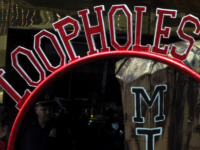TikTok may be enormously popular, but according to the growing number of government, there are concerns regarding links between the app and the Chinese government. That has led to a rapid spread bans of the TikTok app on government devices not only at the federal level, but at provincial and municipal governments and even at universities for university-owned devices. But is TikTok unique in this regard? How to reconcile the government’s insistence that TikTok contribute to Cancon in Bill C-11 with it banning the app due to security risks? Are the privacy concerns more about TikTok or the government’s inaction on privacy reform?
Fenwick McKelvey is an Associate Professor in Information and Communication Technology Policy in the Department of Communication Studies at Concordia University and the co-director of the Applied AI Institute. He returns to the Law Bytes podcast to talk about the TikTok bans, the state of Canadian policy in addressing the concerns, and why we may be heading for more geo-political battles over digital policy.











